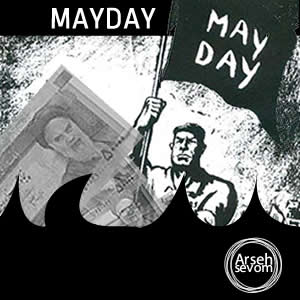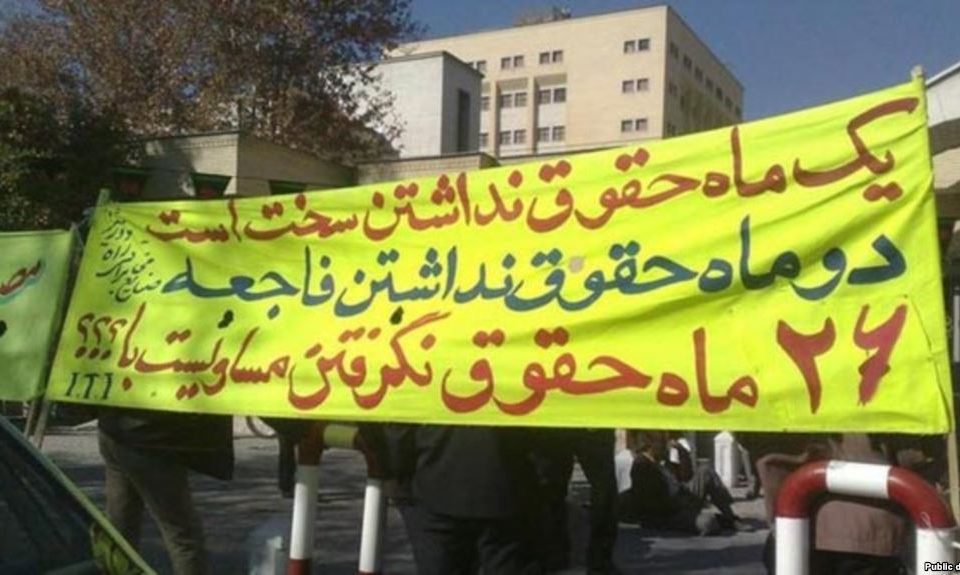
Iran’s Military-Electoral Quagmire
April 16, 2013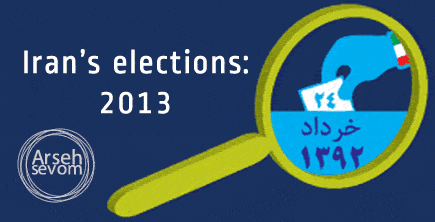
Iran: Monitoring Out of Country Voting
May 6, 2013The cost of currency combined with crippling sanctions is hurting all sectors of Iran’s society from business owners to pharmaceutical manufacturers to the population at large. Iron sellers went on strike, a food for oil deal with Shell was blocked, and children are going malnourished. Iran’s workers suffer from unpaid wages and poor safety regulations. The subsidy for medication is being slashed, and whole generations are coming to age in Iran without access to emplyment (meaningful or otherwise). Never fear! The morals police are on the job and have identified the true source of Iran’s woes: women in “bad hijab” and their cute little dogs. With their plan to crackdown, help is finally on the way.
May Day, May Day
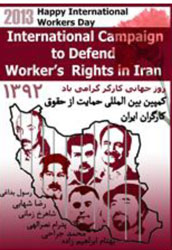 A new campaign calling itself the International Campaign to Support the Rights of Iranian Workers has called on “those who believe in social justice and who want the freedom of imprisoned workers to become the voice of Iranian workers between the 21st of April to the 1st of May”
A new campaign calling itself the International Campaign to Support the Rights of Iranian Workers has called on “those who believe in social justice and who want the freedom of imprisoned workers to become the voice of Iranian workers between the 21st of April to the 1st of May”
In a statement, the campaign outlines the state of the working class of Iran. It draws attention to low wages and long delays in salary payments, which threaten the very survival of families. Poor oversight and lack of safety regulations contribute to five fatal accidents per day, with no safety net for the families of these uninsured workers.
Independent unions are now forbidden in Iran and many activists find themselves imprisoned and harassed for advocating for their rights and drawing attention to the dire situation of workers and their families.
The campaign also focuses on child labor, the abuse of Afghan workers, and gender discrimination in factories.
Despite the fact that Iran is a signatory to a number of international agreements protecting the rights of workers, in practice the protections do not exist.
Medical Crisis in Prisons
In her monthly report on human rights in Iran, Shirin Ebadi draws attention to protests about the lack of medical care in Iran’s prisons, noting that a number of those imprisoned are now on hunger strikes to bring attention to poor conditions. Mehdi Khazali, for one, has been on a hunger strike for more than a month now and is in dire health.

HRANA’s (Human Rights News Activists) April 2013 report [fa] reports further on the poor health conditions of political prisoners. The report from the group details chronic health conditions including cancer and kidney failure and the woeful lack of care for those imprisoned.
The High Cost of Getting Sick
Iran Today [fa] reports that parliamentarian Rasoul Khazri who is a member of the health committee, criticized continued cuts to Iran’s health subsidies. In a statement, he said that medical care and health was not being treated as an urgent priority by the government. He noted that 50% of the materials need to make drugs domestically had to be imported. Sanctions and the high cost of foreign currency has led to higher prices in the marketplace. Paying for needed medicine has become a burden for many in Iran.
Oil for Food
Some of you might remember the oil for food deal made in the mid-90s with Iraq. This was to ensure a stable food supply despite crippling sanctions. Iran now finds itself in a similar situation. Because of sanctions, Iran is owed money for its oil by Shell and others. Recently the UK blocked a Royal Dutch Shell plan to pay its 2.3 billion dollar debt with food and/or pharmaceuticals.
Iran’s central bank can no longer subsidize the purchase of foreign currency, which means many businesses are forced to by euros and dollars on the open market at a much higher rate.
Children Go Hungry
Radio Zamaneh [fa] reports that the head of the Association of Pediatricians, Gholam Reza Khatami, says that in the poorer areas of Iran, six percent of children are malnourished. The lack of nutrition manifests itself in the stunted growth of the children.
Workless in Iran
Mehr News Service reports that Iran’s Central Office of Statistics says that three million young people (up to age 30) are without jobs, while unconfirmed reports put the number at five million.
A whole generation has been unable to gain access to the employment market. Even more alarming is that recent high school and college graduates are finding that nothing has changed for them either. No opportunities are opening up in the country despite relatively high levels of education.
Iron Men
The high cost of euros and dollars combined with increased tax burdens has large and small business owners irate. Last week iron sellers closed up shop in Tehran’s largest market and other locations, staging sit-ins at mosques. The iron sellers want the government to address wild currency fluctuations and reduce their tax burden.
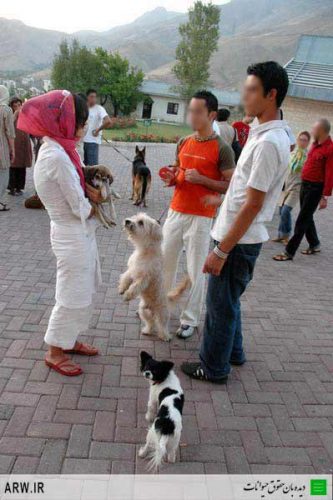 Bad Hijab and Dogs
Bad Hijab and Dogs
Think back readers. When was the last time you felt the moral foundations of society begin to crumble around you? Was it when your neighbor walked that cute little dog by your door? Or when you saw a woman show a bit too much hair? Well, you’ll be happy to know that Iran’s morals police are on the job.
The head of the morals police force sees a correlation among women in “bad hijab,” dog-walking, and moral security, Iran Today reports. He stated, “We have a new plan to control women in bad hijab who flaunt their style and fashion in the streets.” There will be crackdowns on dog walking.
This may sound ridiculous, but it does have real world consequences. Women are fined, arrested, and harassed. Some dog owners have had their pets confiscated and killed. Pets in need of treatment are often left sick because of bans on transporting dogs.
Persian speakers can watch to a 2007 video which presents the hardships of Iran’s dog owners on our Persian site.


